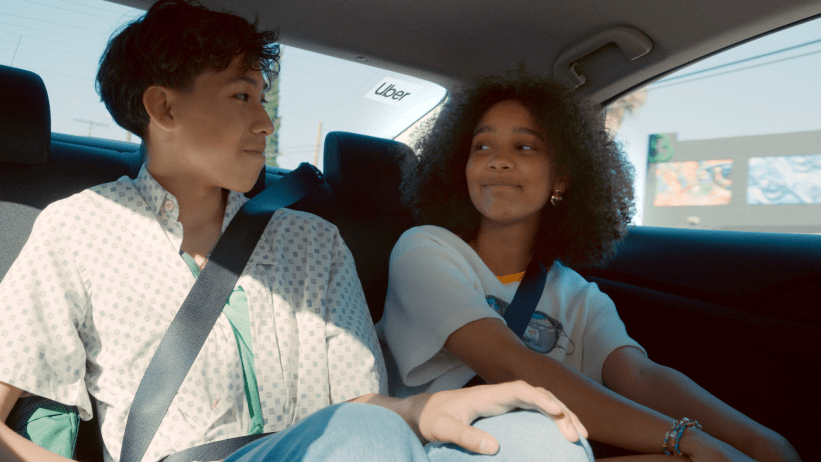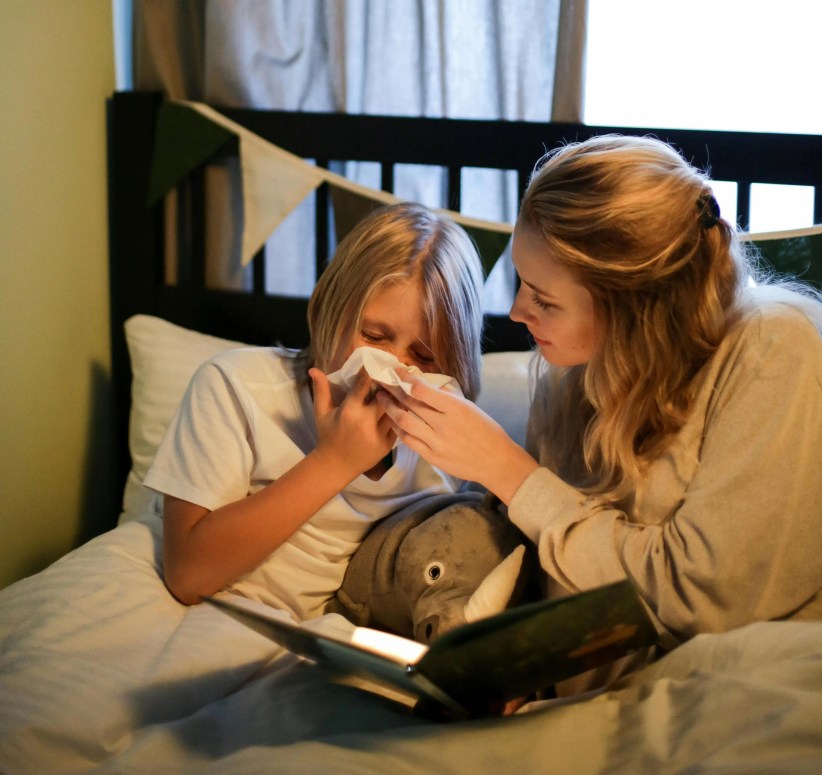At age 14 I announced to my father, “I never want to have children.” This was the truth, and since it didn’t bother me, why—thought the clueless adolescent— would it bother him? “That means you can’t love,” he blurted. Huh? I don’t think either of us understood what he was talking about, but it sounded ominous, and also absurdly out of left field. Being a Freud buff at the time, I assumed that my father was projecting something or other onto me—anxiety about his own aptitude to give or receive love, maybe? He and my mother didn’t exactly live in the land of Happily Ever After—and that, in hindsight, was the heart of the matter at hand.
As the eldest of their three children and a watchful creature by nature
(don’t forget about the Freudfreak part), I’d been making a case study
of my parents’ miserable marriage. Extrapolating from the specific to
the general, I decided that every man is an attentiondeprived
infant-in-waiting and every woman is a put-upon bitch-in-waiting.
What
would release man’s inner infant and women’s inner bitch to do battle
against each other? Parenthood. That’s when the misery would start. To
make my own inner bitch wait forever, all I had to do was avoid
parenthood. And so, during my first marriage, she was
comatose—Tinkerbell without Peter, languishing away in a forgotten
drawer, losing wattage by the hour. Meanwhile, I congratulated myself on
suppressing her so well. I met A at work. I was 23, not long out of
college.
He’d never gone. He was in his early 30s, divorced,
with custody of two young sons, and my aversion to motherhood suited him
just fine. My family and friends feared I was “taking on too much” with
these kids. Little did they know the bullet I had dodged.
It
wasn’t that I didn’t care about my stepsons. Their welfare was important
to me, and I enjoyed them as individuals. In a way I loved them, but
not at full throttle. I operated at a fond remove, like a mildly curious
big sister who was home from college for the summer (only 13 years
separated me from the older boy, almost as many as separated me from his
father) and would hang out with them when there was nothing else on her
mind or agenda. Eventually, I
realized that I operated similarly with A, their father. More than
once, I wondered whether my own father, in his incoherent fashion, had
been right after all: Had I chosen this husband, these children, because
I was incapable of real, ardent love, and they either didn’t notice how
little I gave them, or didn’t mind? Oddly, such thoughts felt idle,
superficial, about as worrisome or as interesting as making a grocery
list. By the time A and I split up and I moved to New York City, my eggs
had aged 10 years, but to the best of my awareness there was still no
clock ticking, let alone alarm sounding. I wondered whether I was the
only childless woman in her 30s to be permanently deaf to these sounds.
My
friends certainly weren’t. My younger sister, who’d married before I
did and had been as sure about wanting motherhood as I was about not
wanting it, conceived her second child soon after my divorce went
through. Towards none of them did I feel a shred of envy. My attitude,
obviously, wasn’t the norm—no one else I knew seemed to share it—but
this bothered me no more in my 30s than it had in my teens. I knew what I
didn’t want: to become a mother, which is to say the resident bitch. To
become, in other words, my mother.
She snarled at breakfast,
still in her bathrobe, without provocation. We were all very careful not
to make noise, spill our cereal, or otherwise provoke her in the
morning, but somehow it still happened. While it wasn’t pleasant to have
Mrs. Monday send you off to school (my sister and I named her after the
horrid woman who ran the orphanage in our favorite book about two
homeless sisters, Nancy and Plum), at least you could justify your bad
feelings toward her without crippling guilt. At night, it was worse. At
night, our mother transformed from mean, selfish Mrs. Monday to a sad,
friendless, passive little orphan—albeit one clutching a tumbler of
Canadian Club on the rocks. The booze, far from perking her up, sunk her
lower with every sip. Mom became needy beyond belief, begged me not to
go to my room or out with a friend; she said she didn’t want to be left
alone.
I hated my mother’s sadness and my guilt about her
sadness. I had to make myself invulnerable to the sadness, which would
prevent me from laying the guilt on someone else—namely, on my own
children, the ones I never wanted to have. It was an endless cognitive
loop, although by now I was convinced that what made my mother so
depressed was not just motherhood per se, but what motherhood meant to
her and her circle of friends: being stuck at home. Fatherhood looked a
hell of a lot better. My father wasn’t stuck at home. He was in the
world, having fun. I figured it was fun because when he came home (none
too often), he wasn’t sad, mean, or depressed. He didn’t make us feel
guilty. His
Then
I met Husband B. Avoiding parenthood was clearly not B’s thing. Early
in our relationship, he asked, “Will you have babies with me?” I was
stunned to hear myself respond—instantaneously, without thinking,
hesitating, or gagging—yes. Not only did say yes; I felt yes. I
wasn’t scared. I was incredibly excited about the idea. I cannot
describe how amazed I was at myself.
But then, I cannot describe
the depth of my love for this man. Here’s what I discovered (listen up,
Daddy): Wanting children doesn’t mean you can love. Loving is what
makes you want children.
At 37, I got pregnant. So much for not
being scared: My primary emotions for the next nine months fluctuated
between terror and deep ambivalence. My two best postdelivery moments
were when a nurse lifted the squealing, slithery thing from my arms and
carried her away to the nursery, and the even better one 15 minutes
later, when the two Percocets I’d been given kicked in. What “maternal
instinct”? Apparently, I didn’t have one. I had become a mother, and all
I felt was dread. Enter the bitch, no longer comatose—ready to save me.
Who knew? I’d been home from the hospital a few days. I was stuck, all
right, but too crazed to notice, much less care. I knew about the
postpartum depression thing and the exhaustion thing, but not about
this: killer waves of incompetence crashing through my body and making
me too frantic to recognize depression or exhaustion, even if they were
there.
I didn’t know what the fuck I was doing, which made me
furious. And Dear B, meanwhile, was as incompetent as I was, and as bad
at covering it up. Having a baby is a crisis until it settles down into
just being your life—and the last thing I needed during a crisis was
another tougher, bitchier me. The diapering alone was a challenge
neither of us could meet. This thing, this baby, was alive and
squirming, nothing like the doll we diapered in Lamaze class—as if
diapering a doll was in any way practice for the real deal. And how was B
supposed to soothe me and help me deal with this crisis if he was in no
better shape than I? I was upset. With myself, actually, because I’m
the mother, and aren’t mothers supposed to know how to be mothers in
their very bones? I’d always thought that when you became a grownup, you
would magically be given the knowledge that grownups require, like how
to prepare a tax return. Not a problem if you can hire an accountant.
You can’t hire a mother. I wanted B to tell me we didn’t need to; we
already had one…me…and that I’d be fine…that I was already. No chance of
him telling me any such thing (I wouldn’t have believed him, anyway),
as he had become entirely preverbal, whimpering and fiddling in
frustration.
The total number of mangled but unused diapers in
the diaper can was up to four. I felt like I was about to snap. I felt
my mother welling up in me…but, just then, diaper #5 went on more or
less correctly.























